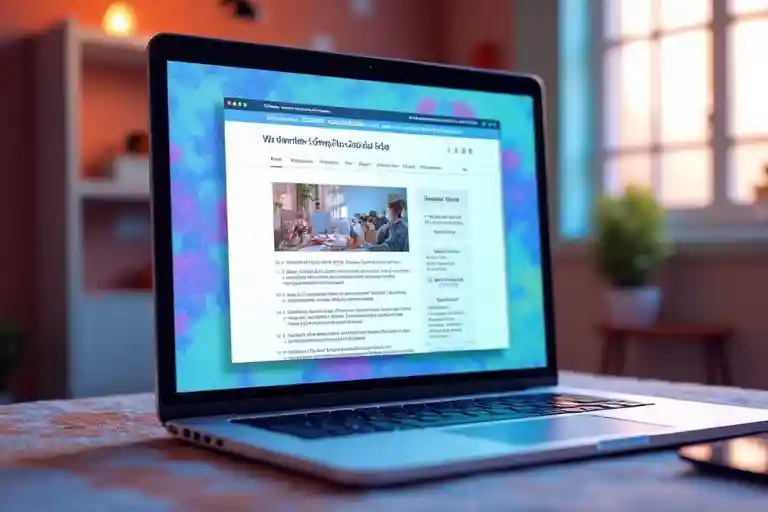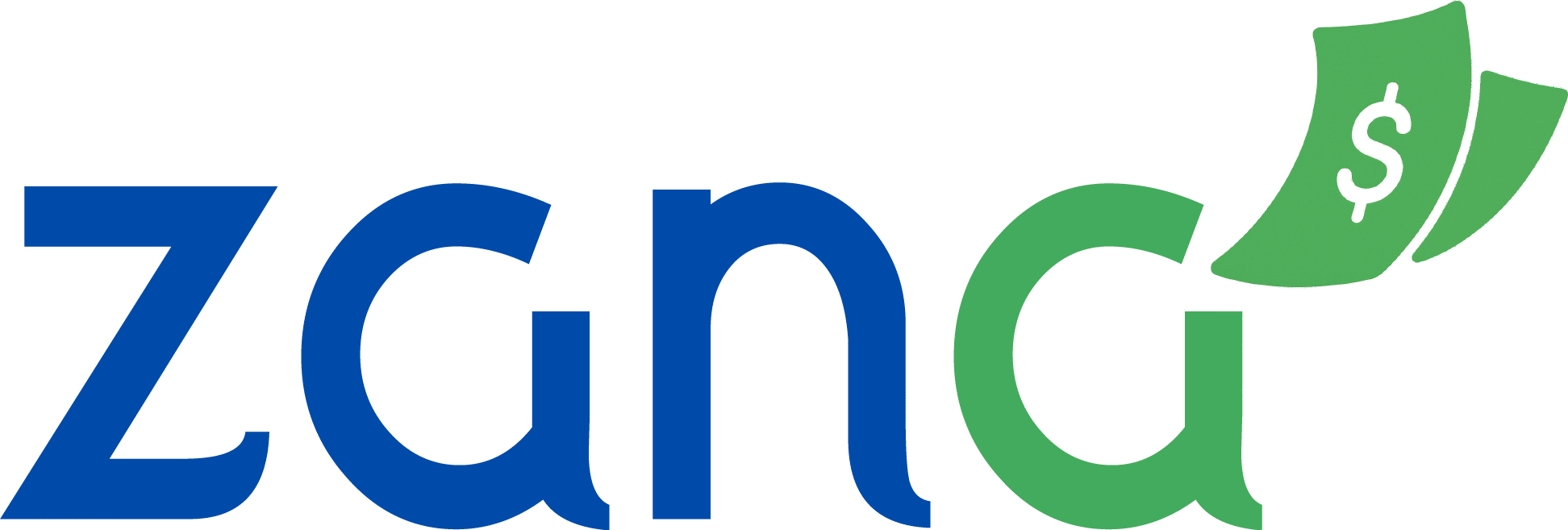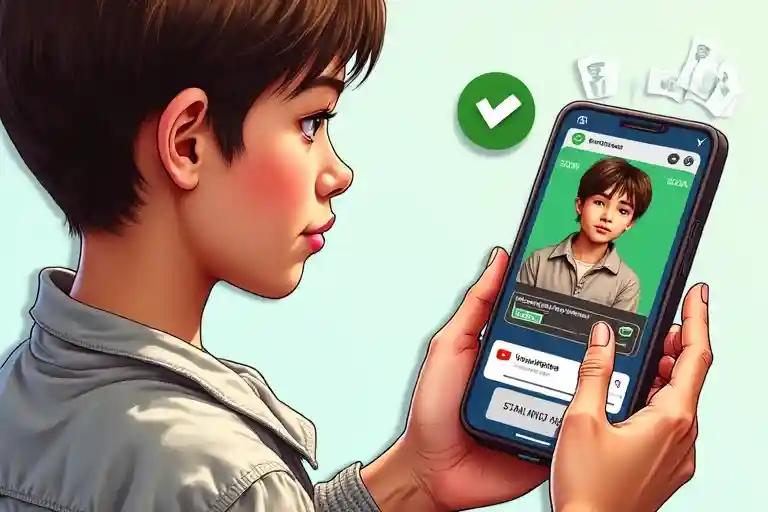Okay, let’s get real for a sec. You’ve got takes. You’ve got stories. Maybe you have an entire universe in your head about a video game, a deep-dive analysis of the latest Marvel series, or the absolute best recipe for microwave mug cakes. Your notes app is probably bursting. So, what’s next? Getting it all online! But finding the easiest blog platform for beginners can feel like trying to choose a new show to binge on Netflix—there are way too many options, and you’re terrified of picking the wrong one. But don’t stress. Seriously. I was shocked myself when I realized how simple it can be. We’re going to break it all down, no confusing tech talk, I promise. We’ll look at the platforms that are genuinely free, what the deal is with big names like WordPress and Blogger, and even peek at what Reddit users are saying. By the end of this, you’ll be ready to launch your own little corner of the internet. Let’s find the perfect stage for your main character energy.
What to Look for in the Easiest Blog Platform for Beginners
Before we start naming names, let’s figure out what “easiest” even means for *you*. It’s not a one-size-fits-all thing. Think of it like picking a character in a video game; you need the one that matches your style. Are you going for speed, looks, or long-term power? The easiest blog platform for beginners should tick a few key boxes, especially for teens who just want to get started without a massive headache or asking their parents for cash. Here’s the lowdown on what to keep an eye out for.
Super-Easy Setup (No Coding!)
This is the big one. You shouldn’t need to recognize what HTML or CSS is just to jot down approximately your favored matters. The perfect platform for a novice should have a drag-and-drop editor or a tremendous intuitive interface. It need to feel as clean as making a PowerPoint presentation or designing a post on Canva. You need with a purpose to sign on and have your first submit posted in below an hour—no longer spend every week looking YouTube tutorials on the way to install something. If the setup process looks as if the ‘distracted boyfriend’ meme wherein you are the boyfriend, the perplexing dashboard is the distraction, and your actual blog publish is the ignored girlfriend… Run.
Is It Free Tho?
Let’s be honest, “free” is the magic word. As a teen, you’re probably not looking to drop a bunch of money on a hobby you’re just starting. Many platforms offer free plans, but you gotta read the fine print. A truly great free platform will give you enough to get started without making your site look like a billboard for their brand. We’re talking a free subdomain (like `yourblog.wordpress.com`), decent storage for your images, and access to some cool templates. We’ll dive deeper into some awesome free blogging platforms a bit later on.
Can You Make It Look Cool? (Customization)
Your blog is an extension of your character, so it desires to skip the vibe test. The simplest platform shouldn’t suggest the ugliest. Look for an area that offers a decent selection of current, easy, and cell-friendly themes or templates. You want your weblog to look just as correct for your phone because it does on a pc. The ability to easily alternate colours, fonts, and layouts with none code is a HUGE plus. Because in case your weblog has that “I turned into made in 2005” aesthetic (and not in a fab, retro manner), your friends would possibly just roast you for it.
Easiest blog platform for beginners free
So you want to start a blog, and your budget is exactly zero dollars. I feel that. The good news is, you have options! And they’re pretty good. The whole point of finding the easiest blog platform for beginners free of charge is to get your voice out there without any barriers. These platforms are designed for you to sign up and start typing away in minutes. Think of them as your training wheels for the world of blogging. They handle all the technical stuff—the hosting, the security, all that boring backend junk—so you can focus on the fun part: creating content. You won’t have to worry about your site crashing or getting hacked. For more ideas on getting started for free, you might want to check out some easy and free blog platforms.
However, “free” usually comes with a couple of trade-offs. First, your website address will likely have the platform’s name in it (e.g., `yourcoolblog.blogspot.com`). Second, you might have some ads from the platform on your site that you don’t get paid for. And third, your customization options might be a bit limited compared to paid plans. But honestly? For a beginner, none of that is a deal-breaker. It’s about getting your feet wet and seeing if you even *like* blogging before you commit any cash. It’s the perfect, no-risk way to start building your empire.

Blogger
Okay, let’s talk about an old-school classic: Blogger. If the internet had a hall of fame, Blogger would have a plaque. It’s owned by Google, which is a pretty big deal. It’s been around since 1999—that’s probably before you were born, which is wild to think about. Because it’s a Google product, setting it up is ridiculously simple. If you have a Gmail account, you basically already have a Blogger account. You just have to go and activate it. It’s one of the original contenders for the easiest blog platform for beginners, and for good reason. It’s 100% free, forever.
The best part about Blogger is its simplicity. The dashboard is clean, and there aren’t a million buttons and menus to distract you. You write, you hit publish. Done. It’s also super reliable because, well, it’s run by Google. You never have to worry about it going down. I had a friend in middle school who started a blog on Blogger to review movies. He wasn’t a tech person at all, but he had it up and running in one afternoon. He loved that he didn’t have to think about anything but writing his reviews. The downside? It can feel a bit dated. The theme selection isn’t as slick as some of the newer platforms, and there aren’t as many cool gadgets (they call them widgets) to add. But for pure, simple, no-fuss blogging? It’s still a solid choice.
WordPress
Alright, you CANNOT talk about blogging without talking about WordPress. But wait a moment… this is where things get a little confusing, so listen up. There are actually TWO versions of WordPress, and it’s a classic mix-up, like thinking Star-Lord is the strongest Avenger (we all know it’s Wanda). It’s super important to know the difference when you’re looking for the easiest blog platform for beginners.
WordPress.com: The Beginner-Friendly One
This is the one you probably want to start with. WordPress.com is a for-profit company that uses the WordPress software to provide you with an all-in-one platform. Think of it like Blogger or Wix. You sign up, pick a name, and you’re good to go. The free plan is fantastic for beginners. It handles all the hosting and security for you. You get a `yourblog.wordpress.com` address and a bunch of great-looking themes to start with. It’s designed to be user-friendly and is a great way to experience the power of WordPress without any of the technical stress. You can explore a bunch of the best free blogging platforms and you’ll see WordPress.com mentioned everywhere.
WordPress.org: The Pro-Level One
This is the “self-hosted” version. This means you download the WordPress software for free, but you have to buy your own domain name (like `yourcoolblog.com`) and find a web hosting company to put your site on the internet. It gives you 100% control over EVERYTHING. You can install any theme, any plugin, and monetize it however you want. It’s the platform that most big-time bloggers and businesses use. But—and this is a big but—it comes with a steeper learning curve. You’re responsible for your own security, backups, and updates. It’s not necessarily hard, but it’s more hands-on. For a complete beginner, it might be a bit much to handle right out of the gate.
Best free blogging platform
So, what IS the best free blogging platform? The honest answer is… it depends on your goal. Are you trying to build a writing portfolio, share your fanfiction, or just have an online diary? Different platforms are good for different things. To make it super clear, let’s break down the top contenders in a table. This is your cheat sheet for choosing where to plant your flag on the internet. Remember, the easiest blog platform for beginners is the one that makes you *want* to keep creating.
| Platform | Ease of Use (for a total beginner) | Customization (How much can you change the look?) | Best For… |
|---|---|---|---|
| WordPress.com | Pretty Easy. The new editor is very visual. | Good on free plan, great on paid plans. Lots of modern themes. | Serious beginners who might want to grow their blog later. |
| Blogger | SUPER Easy. The simplest of them all. | Basic. Themes can feel a bit old-school. | Hobbyists and anyone who wants a no-fuss, purely text-based blog. |
| Wix | Easy. The drag-and-drop editor is very intuitive. | Excellent. You can control almost every pixel. | Visual people who care a lot about design (artists, photographers). |
| Medium | Insanely Easy. It’s more of a writing platform than a blog builder. | Almost Zero. Everyone’s page looks the same. | Writers who want a built-in audience and don’t care about design. |
Easiest blog platform for beginners reddit
So what’s the real talk on the street? For that, we turn to the internet’s most brutally honest forum: Reddit. When you search for “easiest blog platform for beginners reddit,” you dive into a world of passionate opinions. It’s like asking a fandom which ship is canon—people have *feelings*. But a few clear patterns emerge. A lot of users on subreddits like r/blogging will point beginners toward WordPress.com. They praise it for being a great starting point that can scale up if your blog takes off. They see it as an investment in your future self.
On the other hand, you’ll see a ton of love for platforms like Squarespace and Wix, especially from people who are more visually focused. They’ll say the extra cost is worth it for the beautiful templates and the dead-simple drag-and-drop editors. And then there’s the camp that champions static site generators like Hugo or Jekyll, but let’s be real—that’s advanced-level stuff, not for beginners. The biggest takeaway from Reddit is this: start simple. Don’t get caught up in the hype of a complex platform you don’t need yet. The consensus is clear, you can find the best free blogging platform on Reddit, but the choice is ultimately yours. The “best” is what gets you writing, not what gets you the most upvotes.
Best blogging platform to make money
Okay, let’s talk about the money. Maybe you’re starting your blog for fun, but deep down, there’s a little voice whispering, “Could I make some cash from this?” The answer is YES, absolutely. But your choice of platform can make a huge difference. When you’re thinking long-term, the best blogging platform to make money is almost universally agreed upon to be self-hosted WordPress.org. Why? One word: _control_.
With WordPress.org, your blog is YOURS. You can run any kind of ads you want, like Google AdSense. You can use any affiliate links. You can sell your own products—digital downloads, merch, you name it—without the platform taking a cut. Many free platforms have strict rules about monetization. For example, WordPress.com’s free plan doesn’t let you run ads. You have to upgrade to a higher-tier plan to unlock those features. This isn’t a bad thing! It’s just their business model. But if your primary goal is to turn your blog into a business, starting with the end in mind and choosing a platform with maximum flexibility like WordPress.org is a smart move. It’s more work upfront, but it gives you unlimited potential down the road.
Safety First: Blogging Tips for Teens
This is the part your parents want you to read. For real. Starting a blog is awesome, but the internet can be a weird place. Being smart and safe is non-negotiable. It’s not about being scared; it’s about being powerful and in control of your own space. Finding the easiest blog platform for beginners is only half the battle; the other half is using it wisely.
Your Identity is Not Content
Rule number one, two, and three: protect your personal information. This is HUGE. Don’t use your full real name. Don’t share what school you go to. Don’t post pictures of your house or mention your exact neighborhood. Think of a cool pen name or a handle to use. It’s like having a superhero identity! This keeps the focus on your ideas, not on you. Your blog is about your passion for vintage fashion, not your home address.
The Comments Section: Trolls vs. Friends
Getting comments is exciting! It means people are reading your stuff. But not all comments will be nice. Some people (we call them trolls) just like to be mean from behind a screen. Most blogging platforms let you moderate comments, which means you get to approve them before they go public. USE THIS FEATURE. It’s your house, you decide who gets to speak. Don’t be afraid to delete nasty comments and block users. Your mental health is way more important than their mean-spirited “feedback.”
Parental Guidance is… Cool?
I know, I know. But hear me out. Having a trusted adult in the loop is actually a smart move. Let your parents or an older sibling know you’re starting a blog. They can be a great sounding board for ideas and a second pair of eyes for safety stuff. Plus, many platforms technically require you to be 13 or older, and some have terms of service that require parental consent if you’re under 18, especially if you ever plan to make money from it. It’s not about them controlling your content; it’s about having backup. Having an adult on your team is a power-up, not a penalty.

Conclusion
Whew. Okay, we covered a LOT. But the big takeaway is this: the easiest blog platform for beginners is the one that gets out of your way and lets you create. Don’t get paralyzed by trying to find the one, perfect, ultimate platform. The real secret? Just start. Pick one that feels right—maybe it’s the super-simple Blogger or the beginner-friendly WordPress.com. You can always change later if you want to! What you can’t get back is the time you spend just *thinking* about starting. Your voice, your stories, and your hot takes are what matter most. The platform is just the microphone.
So, what are you waiting for? Your corner of the internet is waiting for you to build it. Get out there and start writing!
Ready to build your blog? Drop a comment below and tell us what you’re thinking of blogging about! We’d love to hear your ideas.
Know a friend with main character energy? Share this article with them on TikTok or Instagram and dare them to start their own blog!
Last Updated: June 2025. The world of blogging platforms changes fast! Be sure to check back with zana.website for the latest updates and guides.
Frequently Asked Questions
1. What is the easiest platform to start a blog on?
For absolute beginners who want the quickest and simplest setup, Blogger is often considered the easiest. It’s owned by Google, so if you have a Gmail account, you can start in minutes. For a balance of ease and future growth potential, WordPress.com and Wix are also fantastic choices with intuitive, user-friendly interfaces that don’t require any coding knowledge to get started.
2. How can I start blogging as a beginner?
First, pick a topic you’re passionate about. Next, choose a beginner-friendly platform like WordPress.com or Blogger. Sign up, select a simple theme that you like, and write your first post! Don’t worry about making it perfect. Just focus on sharing your ideas. The most important step is simply to start writing and hit that “publish” button. You’ll learn and improve as you go.
3. Which blog is best to start?
The best blog to start is one focused on something you genuinely love and won’t get tired of writing about. It could be video games, book reviews, fashion, a personal journal, or tutorials. When you’re passionate, it shows in your writing and keeps you motivated. As for the platform, the best free blogging platform is one that matches your technical comfort level and goals.
4. How long does it take to make $1000 per month blogging?
This varies wildly and depends on your niche, content quality, and marketing efforts. For most bloggers, reaching $1000 per month can take anywhere from 12 to 24 months, or even longer. It requires consistently publishing valuable content, building an audience, and implementing a monetization strategy like affiliate marketing or ads. It’s a marathon, not a sprint, so patience is key.









